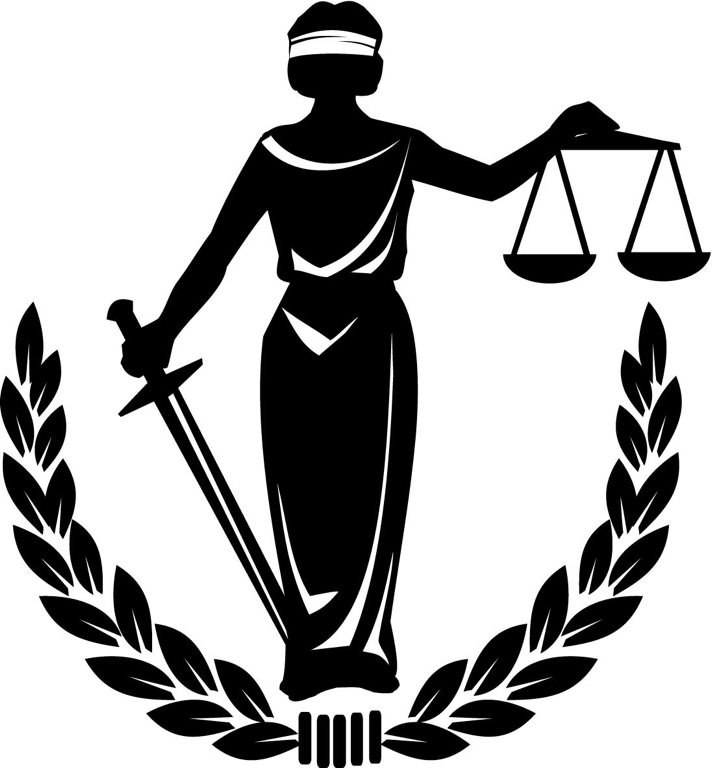Friday 1 November 2013
Lego Halloween
http://www.youtube.com/v/-fxezpR7WE0?autohide=1&version=3&feature=share&autohide=1&attribution_tag=QD8HRiM2C3jw-lUNfmNXpQ&showinfo=1&autoplay=1
Tuesday 22 October 2013
Inglês na Ponta da Língua
This is a very nice site with lots of information about language guys, it is worth checking:
http://www.inglesnapontadalingua.com.br/
I'm posting one of its lessons here today:
http://www.inglesnapontadalingua.com.br/2013/04/ministerio-publico-em-ingles.html
 Nesse passo, o Procurador de Justiça (membro do MP que atua em 2° grau) seria Attorney, pois sua atribuição não é simplesmente na Comarca (region) e sim junto à Justiça em segundo Grau. Temos ainda o Procurador Geral de Justiça (chefe do Ministério Público Estadual), que terá seu equivalente no Attorney General.
Nesse passo, o Procurador de Justiça (membro do MP que atua em 2° grau) seria Attorney, pois sua atribuição não é simplesmente na Comarca (region) e sim junto à Justiça em segundo Grau. Temos ainda o Procurador Geral de Justiça (chefe do Ministério Público Estadual), que terá seu equivalente no Attorney General.
http://www.inglesnapontadalingua.com.br/
I'm posting one of its lessons here today:
http://www.inglesnapontadalingua.com.br/2013/04/ministerio-publico-em-ingles.html
Como dizer Ministério Público em inglês?
Ou ainda, como dizer promotor e procurador em inglês? Confesso não ser
nada fácil falar sobre isso. Portanto, convidei o amigo Marçal Couceiro,
profissional na área do Direito e (ex-)professor de inglês,
para nos ajudar. No texto abaixo ele escreve sobre as equivalências e
procura mostrar de forma simples a relação entre esses termos.
O Ministério Público, nos países do
chamado Common Law, é de grande importância como é no Brasil e, exceto
por algumas diferenças particulares, têm a mesma função: ser o titular
da ação penal. Neste texto irei me ater ao sistema Norte americano, pois
meu contato foi exatamente com um membro do Parquet daquele país.
Assim, vamos às correspondências.
Nos Estados Unidos o termo utilizado para aquele que promove a ação penal é D.A. - District Attorney. Portanto, esse é o equivalente ao nosso Promotor de Justiça. Se o D.A é o Promotor, o local onde ele trabalha é o D.A Office; logo trata-se do correspondente ao nosso MP em nível estadual.
 Nesse passo, o Procurador de Justiça (membro do MP que atua em 2° grau) seria Attorney, pois sua atribuição não é simplesmente na Comarca (region) e sim junto à Justiça em segundo Grau. Temos ainda o Procurador Geral de Justiça (chefe do Ministério Público Estadual), que terá seu equivalente no Attorney General.
Nesse passo, o Procurador de Justiça (membro do MP que atua em 2° grau) seria Attorney, pois sua atribuição não é simplesmente na Comarca (region) e sim junto à Justiça em segundo Grau. Temos ainda o Procurador Geral de Justiça (chefe do Ministério Público Estadual), que terá seu equivalente no Attorney General.
Mas não para por aí, falamos do MP em nível estadual, nada mais justo que falarmos do MPF (Ministério Público Federal), não é mesmo?
Aquele que no Estado é chamado de Promotor de Justiça, em nível Federal se chama Procurador da República e, seu equivalente no inglês americano é o Prosecutor. O MPF, nesse caso, tem seu equivalente no Prosecution Office. Já o nosso Procurador Geral da República encontra seu equivalente em inglês com o termo Prosecutor General.
Deixei de mencionar os Procuradores
Regionais da República e os Sub Procuradores da República por não
encontrar os equivalentes no sistema americano. Como os sistemas são
diferentes, não é de estranhar que alguns cargos fiquem faltando.
Por fim, devo lembrar, que esses são
termos equivalentes consideradas as funções estabelecidas. Ao promotor
ou procurador sugiro cuidado na hora de se apresentar a alguém de outro
país. Lembre-se que os sistemas jurídicos são diferentes e sempre diga
que a sua profissão equivale a de _________ nos Estados Unidos.
Para efeito de tradução, ao se referir ao MP Brasileiro prefira sempre o termo Public Ministry. Antes de concluir aqui o tema, ressalto que na terra da Rainha – United Kingdom – há o Public Prosecutor e o Crown Prosecution Service como equivalentes a Promotor Público e Ministério Público, respectivamente.
E aí!? Gostou da dica!? Qualquer dúvida, deixe um comentário abaixo. Por fim, aproveite também para ler sobre como dizer advogado em inglês e também aprender alguns outros termos do direito em inglês. Take care, you all!
Tuesday 8 October 2013
Lu's favorite car at the moment
Making short films can be a nice way of hearing yourself in English, and it can also be lots of fun because you get to exercise your creativity!!!
Thursday 3 October 2013
Wednesday 25 September 2013
Thursday 19 September 2013
Tuesday 10 September 2013
right to privacy x artistic expression
I read on this Sunday paper that an American photographer has been sued by having taken pictures of his neighbors and displaying them in an exhibition entitled "The Neighbors".
This event raises the debate over privacy X artistic freedom.
But first you should see the work itself. If you are going to judge anything you must have information about it. So, please take a look at the photos, read the texts and make up your mind:
http://arnesvenson.com/theneighbors.html
The Telegraph, an English newspaper seems to understand that the artist, Arne Svenson was only satisfying an urge. The English paper doesn't seem to consider the work of the photographer offensive. See below an extract of the article from The Telegraph:
One New York photographer, feeling the urge to document the lives of his unknown neighbours, took out a 500mm lens and snapped shots of lives across the street from his Tribeca apartment. Arne Svenson selected the best shots – the back of a napping young man, the knees and dressing-gown tails of a breakfasting couple, a silhouetted young woman fiddling with her hair – and displayed them in the nearby Julie Saul gallery, calling his series “The Neighbors.”
http://my.telegraph.co.uk/expat/sophiepitman/10151613/windows-on-the-soul-of-the-city/
Now, The Guardian, another British newspaper, starts out its article giving you the impression they are against the judge's ruling. However, as you read on, you see that The Guardian points out to the anonimity of the subjects in the photos, thus concluding that what Arn Svenson is really doing is called art:
Svenson's images are not as sensational as they first seem. The identities of his neighbours, who are rendered with a soft, painterly effect, are obscured, and the choice of framing also leaves a sense of mystery. They are truthful, artistic representations of life which possess a subtle theatricality (a characteristic evident throughout his practice).
http://www.theguardian.com/artanddesign/photography-blog/2013/aug/19/art-peeping-photography-privacy-arne-svenson
The Guardian moves toward a comparison between Arn Svenson's work and other photographers who produced analogous works.
Now, thirdly, a blog called "Digital Trends" spreads the story in a sarcastical tone, but gives the warning at the end:
So, there you have it. If you decide to be “that guy” and take “rear window” photos of your neighbors without their consent, just make sure you call it art. But, unless you’re a legit artist, good luck proving that to the cops.
http://www.digitaltrends.com/photography/should-you-get-caught-snooping-around-with-a-camera-call-on-your-rights-as-an-artist/
And what about you? How do you feel about this debate? Should an artist be allowed to take pictures of you, your house and family, exhibit them even without your consent?
And if these images do not allow anyone to recongize you? Would you think differently about them?
Friday 2 August 2013
Thursday 1 August 2013
Getting to know more about you...
- What do you usually do on weekends? Describe the perfect weekend.
- What are your favorite movies?
- Do you have favorite bands or singers? Who are they?
- Do you practice any sport? Which one? Are you good at it? Do you compete?
- Do you follow any blogs, or pages on facebook? What are they about?
- What are your favorite dishes? Do you worry about your diet? Would you like to be thinner? Stronger?
Thursday 25 July 2013
Beauty Treatments - what price would you pay?
Do you think you would like to have a beauty treatment that used snails?
Would you like to have snails sitting on your face to have a better skin?
How far would you go to make yourself more beautiful?
Have you ever had a facial?
What's the most different beauty treatment you have ever had?
What this BBC video lesson and let us know:
http://www.bbc.co.uk/worldservice/learningenglish/language/wordsinthenews/2013/07/130724_vwitn_snail_facial.shtml
Would you like to have snails sitting on your face to have a better skin?
How far would you go to make yourself more beautiful?
Have you ever had a facial?
What's the most different beauty treatment you have ever had?
What this BBC video lesson and let us know:
http://www.bbc.co.uk/worldservice/learningenglish/language/wordsinthenews/2013/07/130724_vwitn_snail_facial.shtml
Friday 28 June 2013
Nice phrasal verbs with LOOK
A) Do you think you can give me an example of something you have been looking for?
B) This is the beggining of the winter holidays here in Brazil? What are your plans? Are you looking forward to them?
C) When was the last time you looked in your Grandparents? Don't you think you should pay them a visit?
image by: English is Fun (http://vk.com/english_is_fun)
Thursday 27 June 2013
Protests in Brazil
What's going on in Brazil?
Do you know the words for "manifestantes", "protesto" and "fazer uma passeata" in English?Let's see if we can learn with this story.
Brazil Protests
http://www.bbc.co.uk/worldservice/learningenglish/language/wordsinthenews/2013/06/130619_vwitn_brazil_protests.shtml
http://www.bbc.co.uk/worldservice/learningenglish/language/wordsinthenews/2013/06/130619_vwitn_brazil_protests.shtml
Subscribe to:
Posts (Atom)



